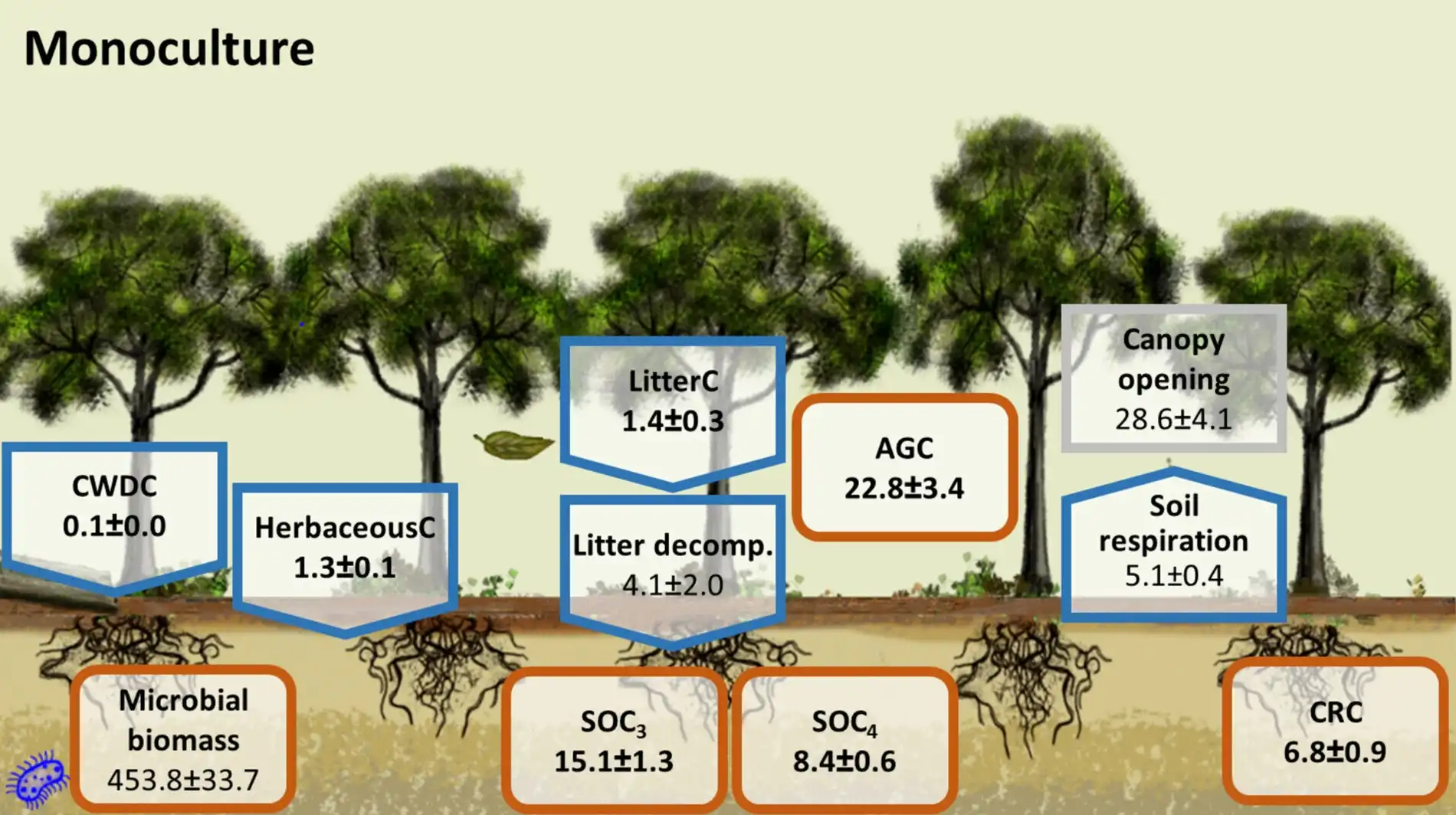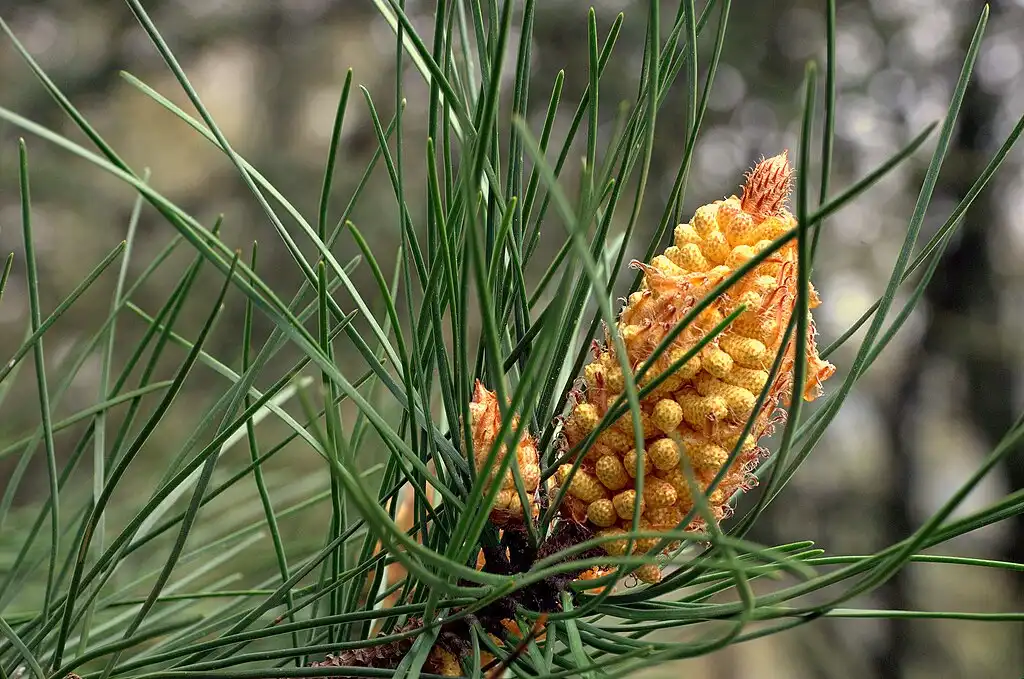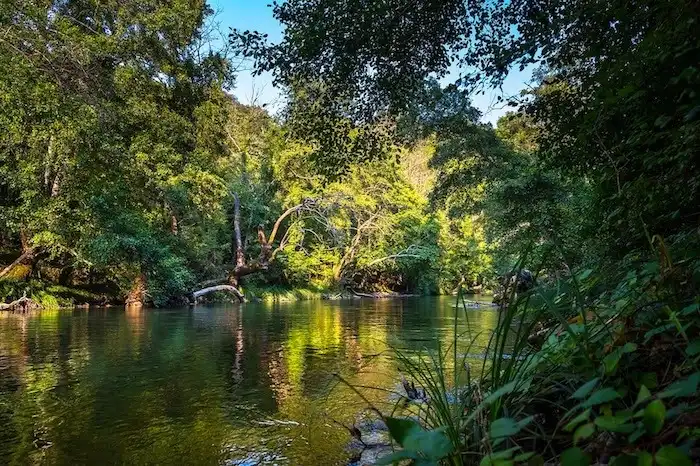
An international study has found that forests with many tree species can store significantly more carbon than those with only one species.

An international study has found that forests with many tree species can store significantly more carbon than those with only one species.
Extreme heat and drought threaten the Fremont cottonwood, a tree vital to desert ecosystems. Research shows these trees, which rely on water to thrive, struggle under combined stress. As water sources dry up, cottonwoods die, reducing biodiversity, cooling effects, and habitats for wildlife. Restoration efforts aim to adapt trees to harsher conditions.

Young maritime pine trees retain a memory of early temperature conditions through epigenetic changes, researchers report. These marks, influencing gene expression but not DNA, persist for up to two years post-germination. This discovery highlights how trees could be conditioned early to adapt to climate change, aiding sustainable forest management.

Researchers improved the survival and growth of *Serianthes nelsonii*, an endangered tree, by using under-plant mirrors to reflect sunlight. This technique increased light availability by over 70%, boosting seedling survival by 160% and plant height by 170%, offering a low-cost conservation strategy for threatened species.

Oxidation of gases emitted by vegetation fire smoke forms abundant ultrafine particles that may intensify deep clouds and heavy rain in the Amazon rainforest

A new study reveals that mature forests play a crucial role in combating climate change by capturing more carbon dioxide (CO2) than previously thought. Researchers found that older trees increased wood production by nearly 10% when exposed to higher CO2 levels, acting as medium-term carbon stores and natural climate solutions.

Researchers discovered forests with cold-air pooling, where colder air settles in valleys, reversing typical temperature patterns. These areas could protect cold-adapted species from climate change, serving as refuges and aiding conservation efforts. The study emphasizes the importance of such forests for species adaptation and carbon storage.

Europe’s forests face a hidden crisis due to climate change, threatening tree species extinction. Research predicts only three out of 69 native species will thrive by 2090, impacting timber, carbon storage, and biodiversity. This calls for adaptable forest management to ensure future resilience and continued ecosystem services.

Tropical rainforest plants and their associated microbial communities navigate drought challenges through unique root metabolism in the rhizosphere.

Tropical forest roots play a crucial role in climate change dynamics, yet they’re often overlooked. New research highlights the significance of understanding root function in tropical ecosystems. By integrating this knowledge into vegetation models, scientists aim to improve predictions of carbon stock changes, essential for mitigating climate impacts.